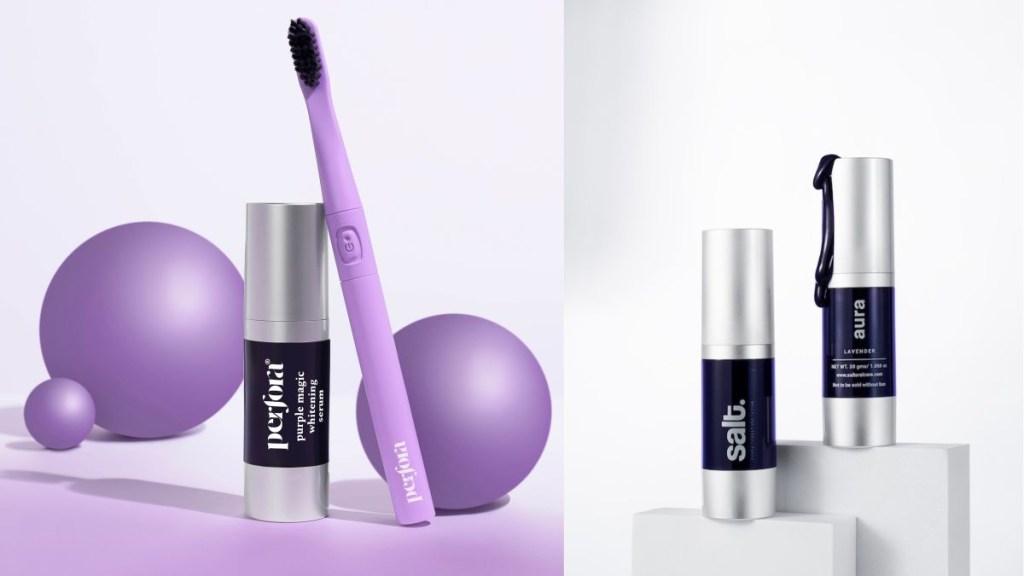Consider this:
- Developing markets such as the Philippines and Brazil respectively consume twice and three times more oral care products than India despite their much smaller population.
- Almost 100% of India’s households, urban and rural, have toothpaste at home. However, 80% of the urban consumers brush just once a day; 55% of their rural counterparts do not brush even once a day.
While India is practically in line with most other markets worldwide in terms of household toothpaste and toothbrush penetration, there is still very little uptake of products that fall under the ‘oral health’ and ‘oral beauty’ regimen. Barathi Srinivas, partner, Kearney, says there is a distinct lack of awareness in India about the need for oral hygiene beyond simply brushing your teeth in the morning and night, and even where consumers are aware of the products available in the market, they consider them expensive and so avoidable. These two factors have inhibited growth so far. Which also means there’s a huge market out there waiting to be captured.
That’s a space a ton of new direct-to-consumer (D2C) brands have entered in recent months with the promise of cutting-edge technology. Take digital-first brand Perfora, which has launched personalised toothbrushes and teeth whitening serums, among a host of other products. Year-old Daybreak has introduced a range of teeth whitening products that can be used at home, apart from a toxin-free toothpaste. On its part, Salt Oral Care has thrown its hat into the ring with a tooth powder, mouth spray, electric toothbrushes, and water flossers while at the same time working to minimise the use of plastic in its product packaging.
So what’s the universe they are looking at? The Indian oral care market size reached $1,844 mn in 2022 and as per IMARC Group estimates, the market is poised to reach $2,586 mn by 2028. Toothpastes dominate the scene followed by toothbrushes, mouthwash and dental rinses. What is noteworthy is the absence of innovative, high-quality and safe products outside the perview of daily cleaning suitable for daily use, says Jatan Bawa, co-founder, Perfora. That apart, “given the high penetration of mouth cleaning products, convincing consumers to try out newer products or brands is a formidable challenge”, Bawa notes. But with the rapid development of online commerce over the past decade or so, along with rising affluence, consumers have started looking for products that fulfil needs beyond the obligatory “physiological” and “safety” aspects.
“We have already seen premiumisation across categories such as skincare and haircare with vanity-driven propositions driving a large part of the growth,” says Sumedh Deshpande, founder, Daybreak. With the “health” and “hygiene” already met to a large extent, the next big wave of growth in oral care will also come from building up the “beauty” segment.
Using the right stroke
Perfora, which closed a Rs 80-lakh funding deal earlier this year on reality TV series Shark Tank India, says its sales have shot up five times since then. The brand has launched a vegan-friendly nano-hydroxyapatite fortified toothpaste, free from harmful ingredients such as titanium dioxide, and sodium saccharin. Its offerings include products tailored for functional benefits and flavour preferences like plaque removal, and fresh breath enhancement, among other things. As much as 90% of its revenue comes from online channels. It also has an offline presence in approximately 500 retail outlets.
Most of these products tout fancy ingredients and are therefore on the premium side. “We are focused on the opportunity that evolved consumers in the top 50 cities represent. We believe they are looking for solutions to more specific, niche oral care problems that the larger players don’t cater to at the moment,” says Daybreak’s Deshpande. Take the serums for oral health for teeth whitening and a powder that it will roll out in a few weeks.
Prices range from Rs 250 to Rs 1,500 and are at 25-35% premium to mainstream options that dominate the segment. However, they expect this gap to reduce significantly with scale. Daybreak is targeting a five-fold increase in its monthly revenue in the next one year, albeit on a tiny base. At present, its range of toothpaste is fluoride and toxin-free including sulphates, parabens, triclosan, and titanium dioxide and is also among the first brands in India to introduce a hydroxyapatite (HAp) toothpaste, a naturally occurring fluoride replacement known to repair enamel.
Launched only a few months ago, Salt Oral Care too has positioned itself as the premium-luxury brand, and has seen an big spike in online revenue with hyper-targeted performance campaigns. With products ranging from tooth powder, water-soluble teeth whitening solutions, mouthwashes, mouth spray, electric toothbrushes, and water flossers, it has set a revenue target of `70 million this fiscal, shares co-founder Viraj Kapur.
All said a strong delivery arm will be make or break for these brands. Salt Oral Care has invested heavily in building a strong last-mile delivery ecosystem and is putting together systems and processes to improve the shipping process for quicker deliveries. It has invested in micro-fulfillment centres in what it calls vantage locations. With a price range starting at Rs 295 and going all the way up to Rs 1,050, it aims to expand the market by making its products accessible across income groups.
